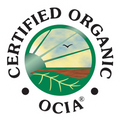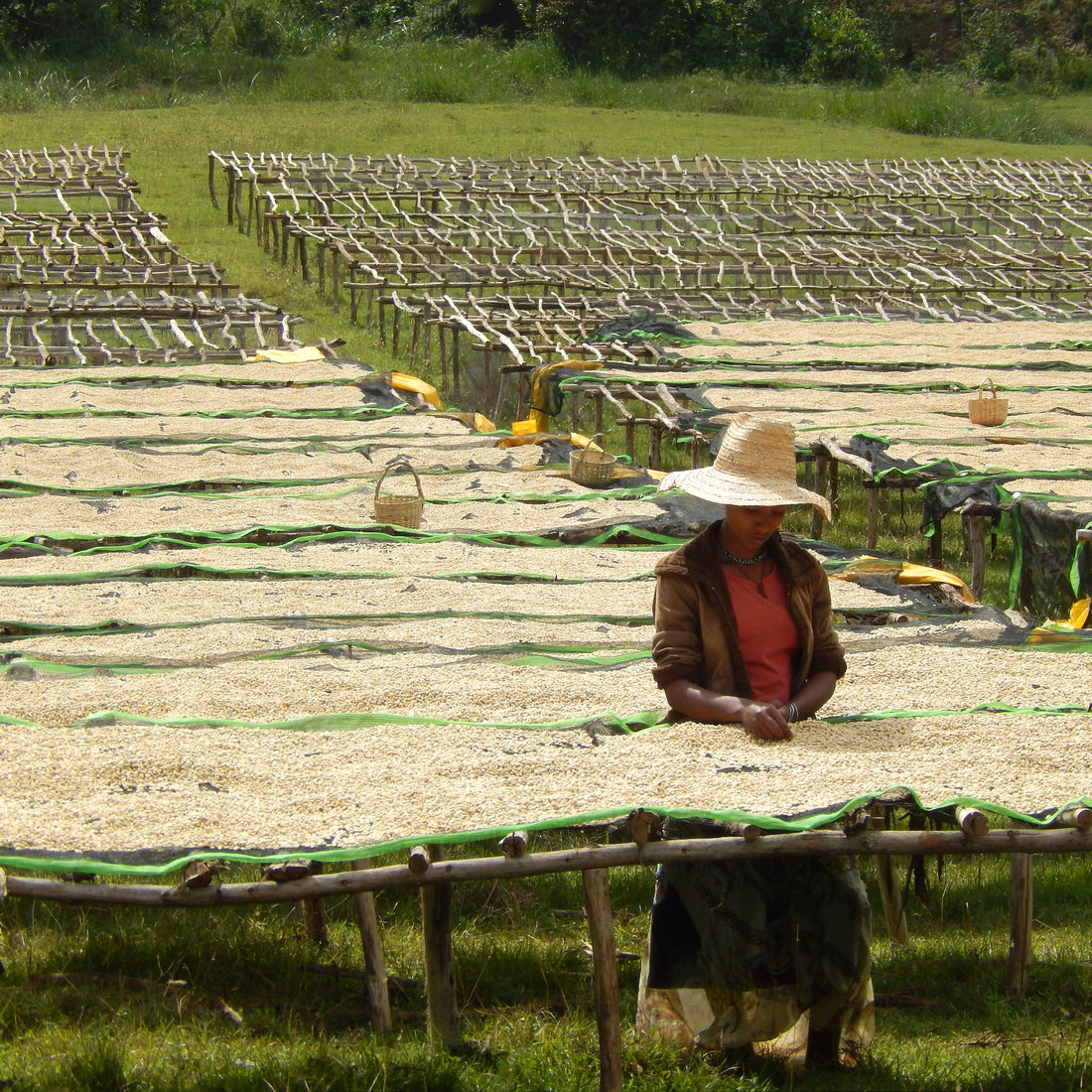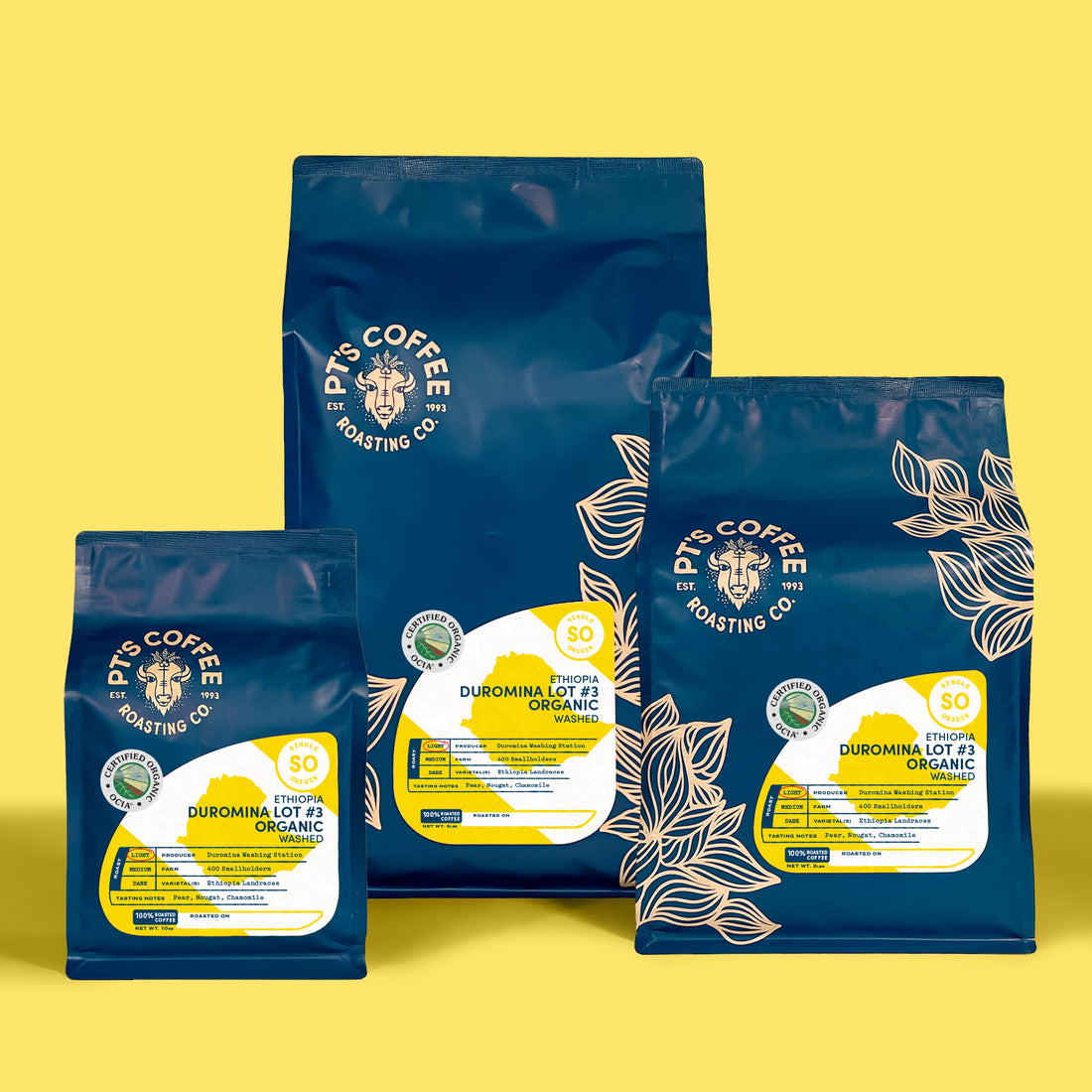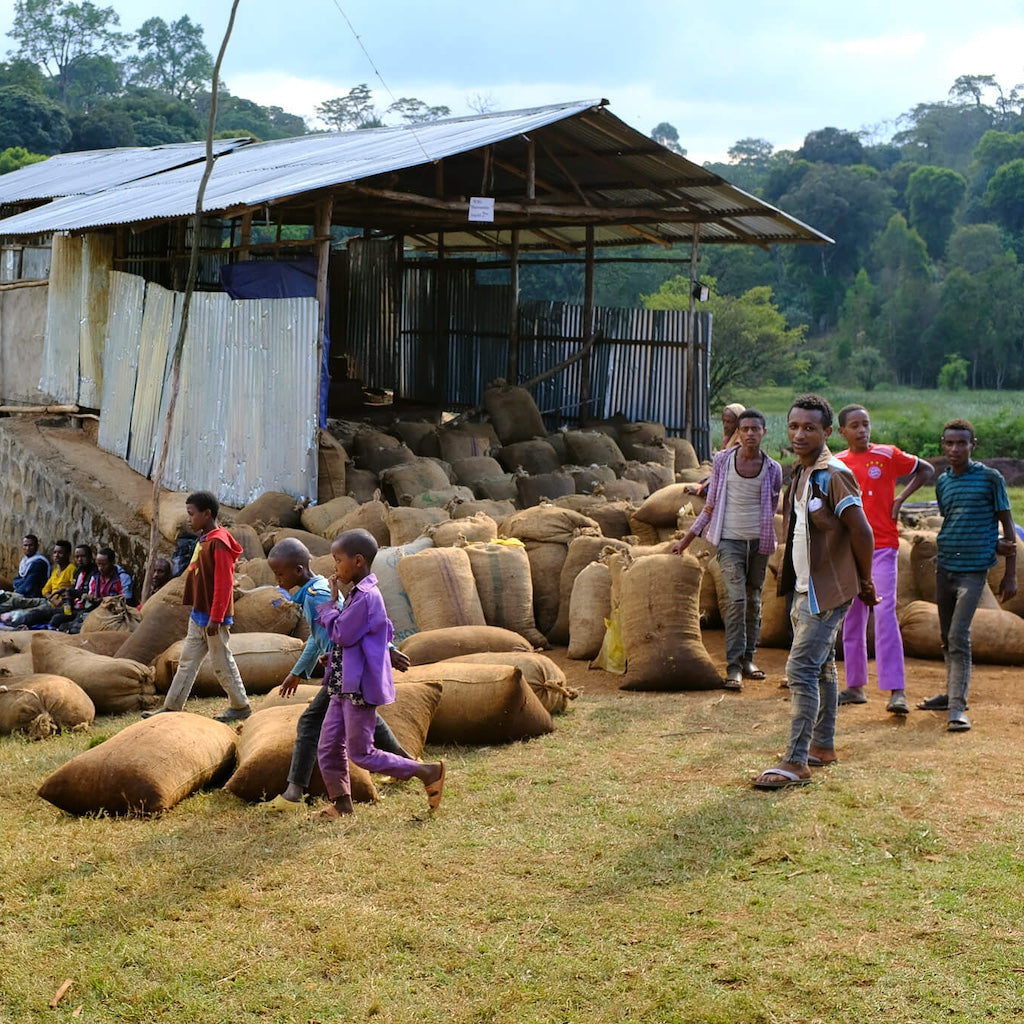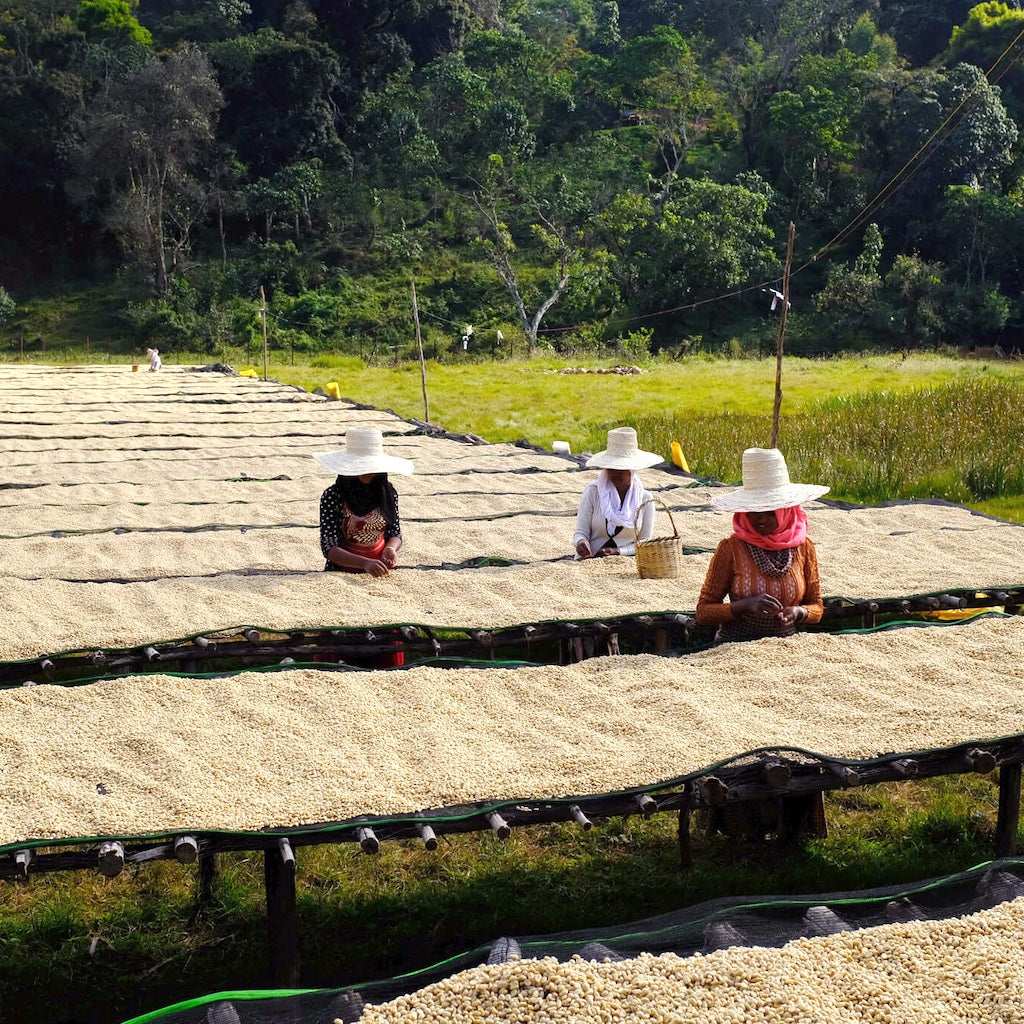Ethiopia
Duromina Lot #3 Organic Washed
Pear, Nougat, Chamomile
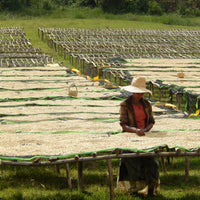
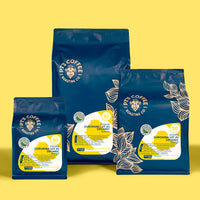
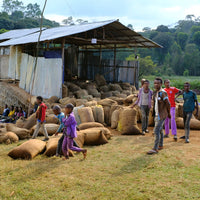
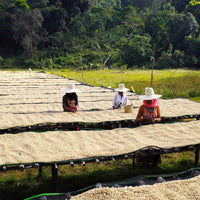
Ethiopia
Duromina Lot #3 Organic Washed
Pear, Nougat, Chamomile
This sweet, silky light roast opens with aromas of golden raisin, nougat, and nutmeg. Notes of chamomile, pear, and cashew accompany nougat sweetness in the brewed cup. The aftertaste features lingering chamomile and a touch of bright green apple.
Certified Organic by OCIA.
Producer: Duromina Washing Station
Farm: 400 Smallholders
Region: Jimma Zone
Altitude: 1,850-1,980 masl
Varietal: Ethiopia Landraces
Process: Washed
Roast: Light
Notes: Pear, Nougat, Chamomile
Imported by our friends at Red Fox:
"Duromina is sourced from 400 smallholder farmers in Ethiopia’s Agaro region in Oromia in the Jimma zone. Back in 2009, when Red Fox co-founder and CEO Aleco first traveled to meet with Agaro cooperatives, their coffees were flowing into the marketplace undifferentiated and undervalued. Once USAID’s Technoserve project, which focused on improving African coffee farmers’ lives by helping them get better prices for their coffee, established these washing stations with brand-new processing equipment, Aleco saw the unique character of these coffees and invested in developing relationships with their producers, which have grown stronger to this day.
"Like the rest of Ethiopia, Jimma is divided into several woredas (districts) and kebeles (communities) with washing stations throughout—each offering unique terroir. The Gomma woreda is one of them, and within it lies the Qadamessa kebele, home to the Duromina washing station.
"At the Duromina washing station, the coffees are washed and mechanically depulped, then soaked overnight in fiberglass tanks. After fermentation, coffee is dried for 6 to 8 hours a day over 6 to 8 days on raised beds, with frequent turning for even drying.
"Qadamessa is characterized by high rainfall distributed across the whole growing season. The harvest season usually goes from mid-October to late January and the farms are located in soaring altitudes that range from 1850-1980 masl. The community’s main source of income is coffee, which they grow on very small farms ranging from 0.1 to 2 hectares.
"Qadamessa’s producers intercrop using false banana trees and maize for shade, selecting based on the age of the coffee plant and its other needs. Their soil is a highly fertile sandy loam with great water retention and drainage. It’s self-sufficient with proper planting practices and doesn’t require fertilizer to produce spectacular quality.
"The farmers of Qadamessa belong to the Oromo people and speak Oromo. They maintain certain ancestral customs and have a quiet lifestyle built almost entirely around coffee farming. Many families here struggle with lack of electricity and drinking-water access. Children in the area usually don’t start going to school until age 9 because they have to travel long distances to get to the nearest school. Due to this education gap, the majority of young people in the area end up dedicating themselves to agriculture: growing potatoes, coffee, maize, or false banana trees on their parents’ or neighbors’ farms."

